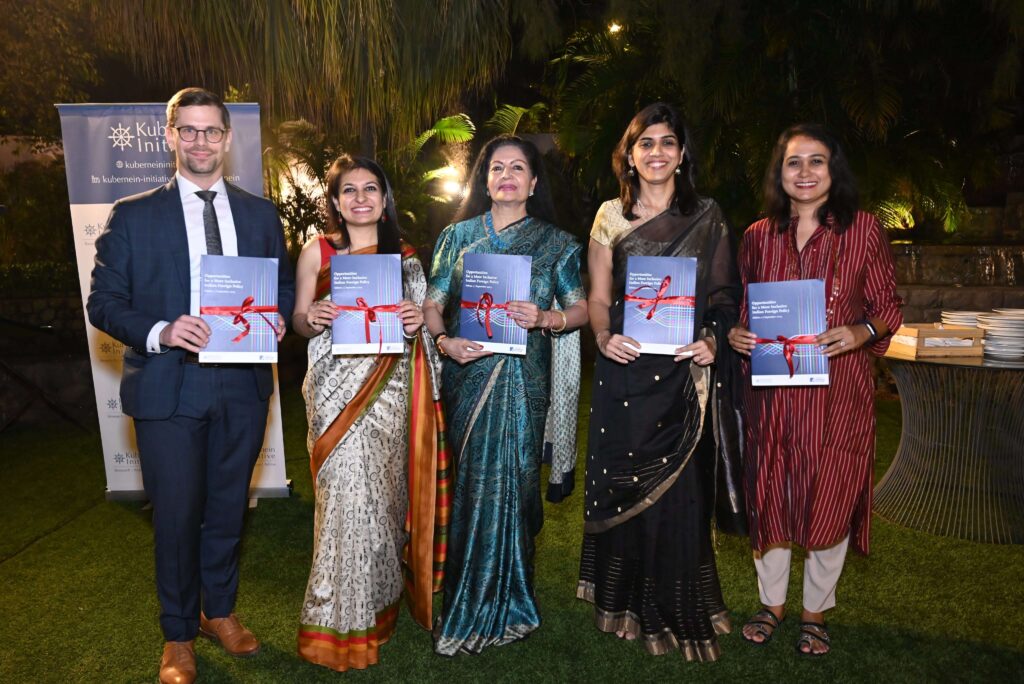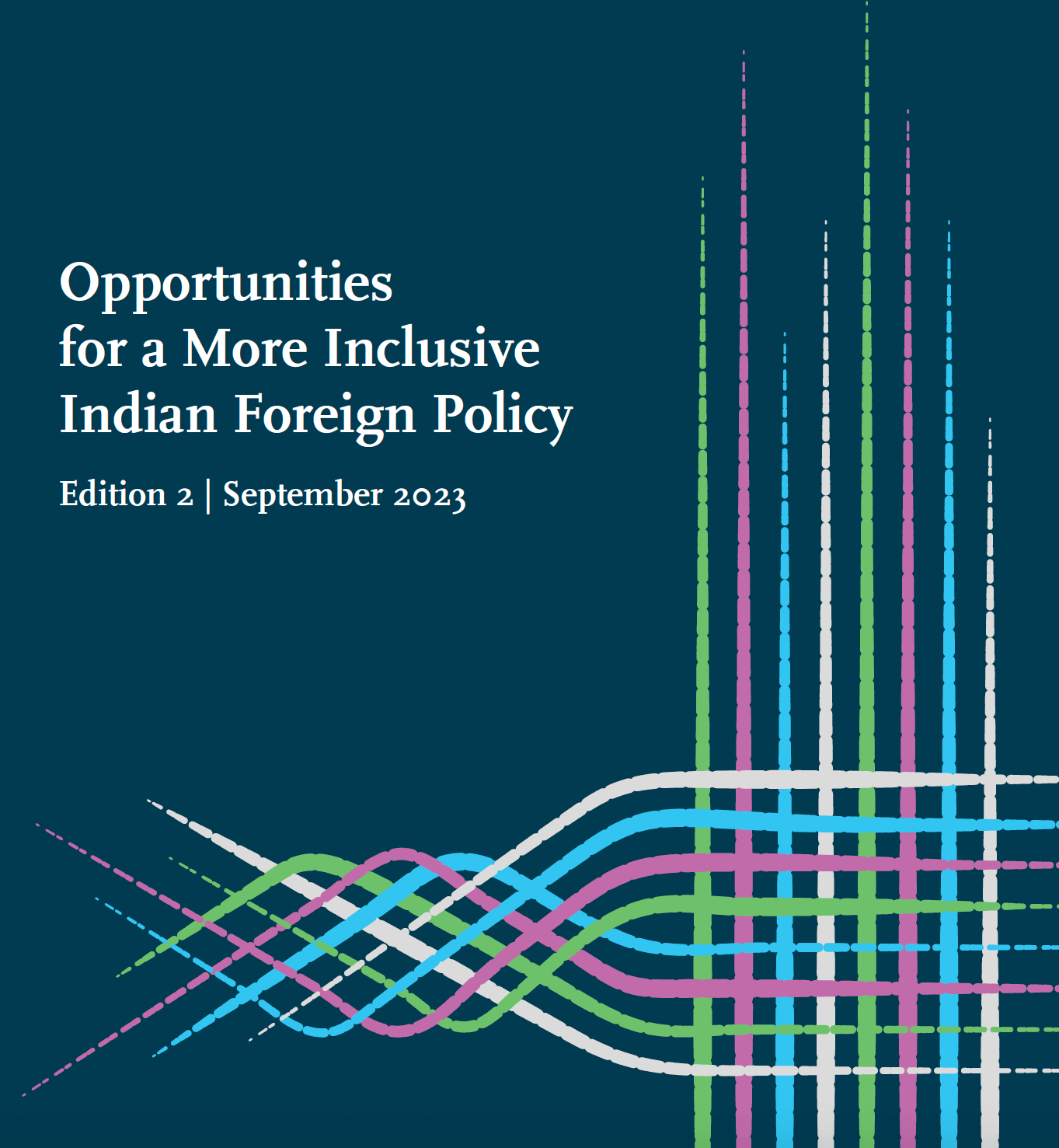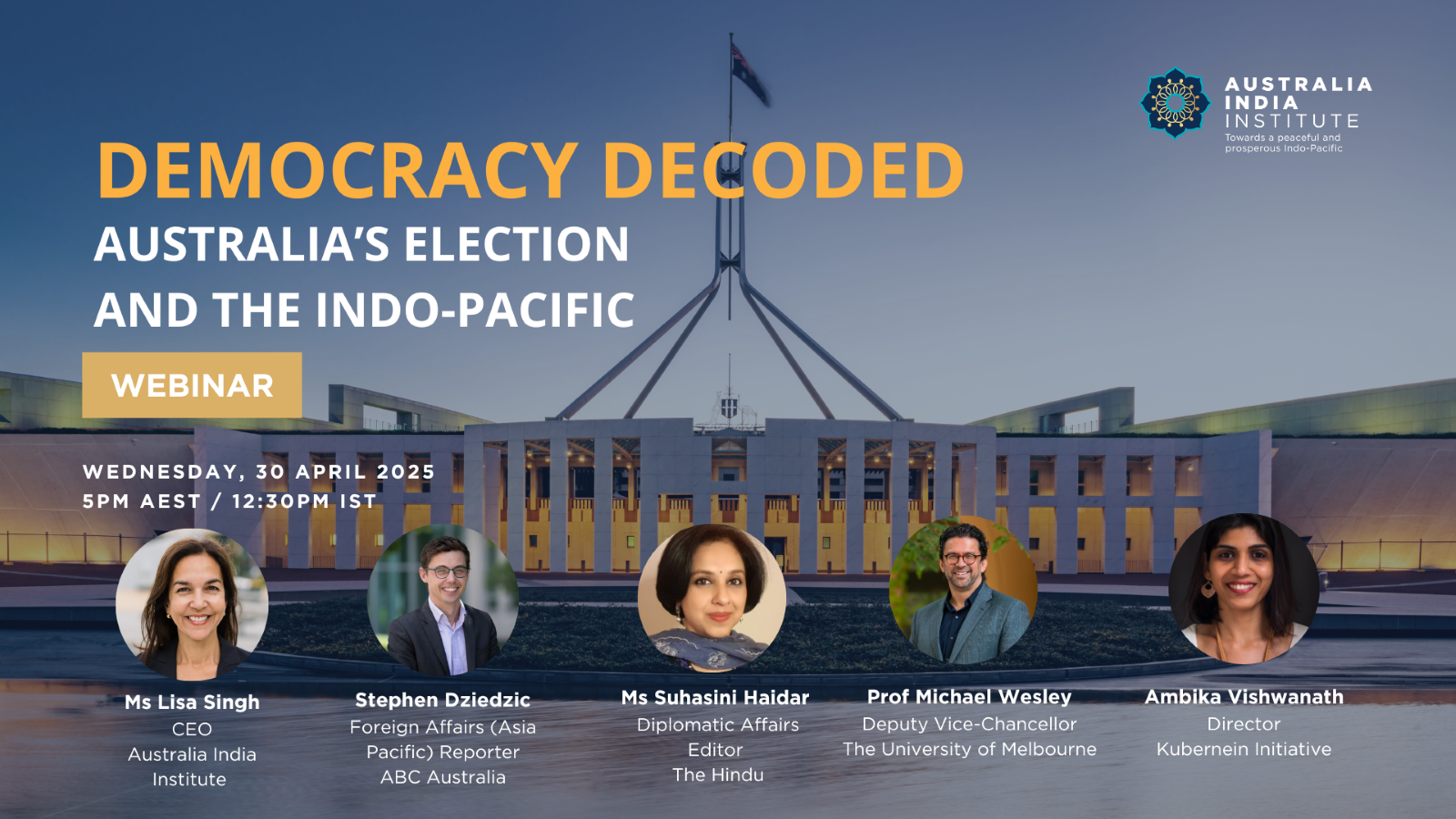
Knowledge Center
Highlighted Events
In partnership with the Federal Foreign Office of Germany, Kubernein Initiative hosted a closed-door roundtable discussion on applying an inclusive lens to the Indo-Pacific region, in New Delhi on 27 October 2023. Through the dialogue, participants put forth diverse thematic and country perspectives on topics related to human security in the Indo-Pacific in climate, energy, trade, energy, maritime relations, and related intersecting themes.
On the sidelines of the round-table we launched the second edition of the report: Opportunities for a More Inclusive Indian Foreign Policy Edition 2 and two policy briefs: Reimagining the Indo-Pacific: Using an Inclusive Lens Policy Brief 1: Opportunities for Indo-German Engagement and Reimagining the Indo-Pacific: Using an Inclusive Lens Policy Brief 2: Implementing a ‘Feminist Reflex’ in Indo-Pacific Climate Policy

In April 2022, after a year and a half of research and extensive consultations, the first edition of this report was released by the then Ambassador of Sweden to India and subsequently presented to a larger audience at a side event of the Raisina Dialogue. This edition is an updated version of what was released in 2022 with the idea that while many of the themes, challenges and solutions have not drastically changed, some of the data has – data that shows progress along with new policies and frameworks; data that indicates change towards a more inclusive future. Since the release of our first report, more countries have either announced a feminist foreign policy or an intention towards one; a small but growing group. We still believe that India is at the cusp of true transformation and has the power and ability to influence the global feminist foreign policy conversation to make it truly inclusive.
Our research and consultations indicate that India has made some progress in terms of both, the area of greater representation of women, and in bringing a gender lens to the policy-making space. However, it is also evident that while the numbers might be increasing, the application of a gender or an even larger human rights lens is still nascent, and somewhat ad hoc. Understanding the thinking and approach applied to some of these foreign policy decisions, especially in the areas of development aid and assistance as well as climate and disaster management could ensure that policies are created under a framework that has a gender and inclusion lens by design. While we have already found some evidence of this, we continue to further study and undertake research to fill in existing gaps.
Simultaneously, pushing for a greater gender lens in a more concerted manner grew across sectors both in India and globally. We also saw India begin and successfully conduct a G20 presidency with a focus on women-led development, where numerous engagement groups incorporated the importance of gender mainstreaming into the debate. At the Voice of the Global South Summit, India brought together perspectives of developing countries and emerging economies that are not often given space at the high table, perspectives that it has promised to carry forward. This speaks to the very core of inclusivity that we advocate for in this report.
In 2024, we updated the data on women in leadership positions within the Ministry of External Affairs, and women who serve as heads of missions abroad. As of July 2024, the gender breakdown of MEA division heads shows that out of 60 total heads of divisions, 53 are men and 7 are women. Women therefore hold only 11.67% of senior leadership positions within the MEA, compared to 13.11% in August 2023. At the junior level, such as Under Secretary, women’s representation is higher, at 21.82%, although this is a drop from the August 2023 figure of 28.57%.
In terms of ambassadors, high commissioners, and heads of mission, there are 202 missions abroad in 149 countries and at multilateral organisations. Of the total 182 heads of mission (ambassadors, high commissioners, and consul generals), 161 are men (88.46%) and 21 are women (11.53%), a decrease from 24 women in August 2023.
A more detailed analysis is available in our August 2024 paper for the India Office of the Heinrich Böll Stiftung, available here.


